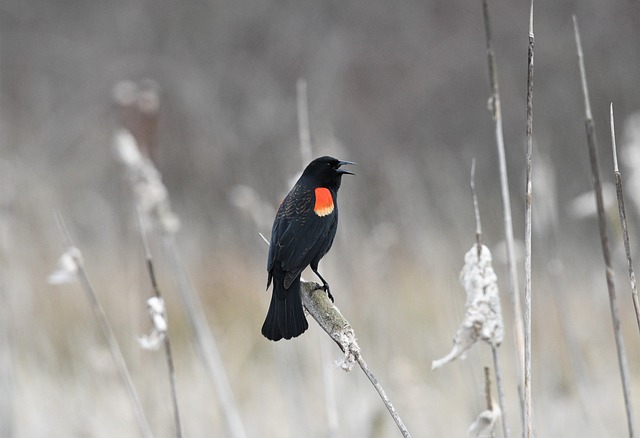Skunks and snakes, common urban wildlife, require humane relocation strategies in areas like Littleton. Specialists emphasize non-invasive trapping, gentle reintegration, and ecological balance for skunks. For snake removal from homes, professionals offer swift, safe interventions while preventing future invasions through proper maintenance practices. These methods prioritize both wildlife welfare and residential safety.
Skunk relocation experts play a vital role in managing wildlife encounters, especially in urban areas like Littleton. This article delves into the critical services provided by wildlife control specialists, focusing on skunk behavior and habitat. We explore the challenges of snake removal from residential properties, highlighting best practices for safe and ethical skunk relocation. By understanding these processes, we can foster harmonious co-existence between residents and wildlife, ensuring the well-being of both in Littleton and surrounding communities.
- Understanding Skunk Behavior and Habitat: A Comprehensive Guide for Relocation Experts
- The Role of Wildlife Control Specialists in Safe Snake Removal from Residential Areas
- Best Practices for Relocating Skunks: Ensuring the Well-being of Both Wildlife and Residents
Understanding Skunk Behavior and Habitat: A Comprehensive Guide for Relocation Experts

Skunks are intelligent creatures with distinct behaviors that experts must understand for successful relocation. Their natural instincts often lead them to seek shelter in residential areas, attics, or crawl spaces, especially during the colder months. Relocation specialists should be aware that skunks are primarily nocturnal and territorial, marking their area with a strong-smelling spray as a defense mechanism. By recognizing these behaviors, experts can develop effective strategies for non-invasive trapping and gentle relocation, ensuring the safety of both the skunk and the surrounding environment, particularly in areas like Littleton where snake removal from residential properties is also a common service.
Skunks are adaptable and can thrive in various habitats, but their preference for secluded, protected spaces remains consistent. Relocation experts should aim to transport them to suitable wilderness areas with abundant cover, such as forests or wetlands, where they can integrate back into their natural ecosystem. Understanding these nuances of skunk behavior and habitat is crucial for humane and successful relocation, especially when dealing with snakes on residential properties in Littleton or similar urban settings.
The Role of Wildlife Control Specialists in Safe Snake Removal from Residential Areas

Wildlife control specialists play a crucial role in ensuring safe and effective snake removal from residential areas, particularly in cities like Littleton. With their expertise, they navigate the delicate balance between human safety and maintaining the ecological balance of local wildlife populations. These professionals are trained to handle various snake species, recognizing their behaviors and employing humane methods for relocation.
When a snake invades a residence in Littleton, it’s essential to call upon specialists equipped with the right tools and knowledge. They carefully assess the situation, determining the best course of action to remove the snake without causing harm to either the creature or residents. Through swift and professional intervention, these experts safeguard homes while preserving the natural habitat and diversity of local snakes, ensuring a safe environment for both people and wildlife.
Best Practices for Relocating Skunks: Ensuring the Well-being of Both Wildlife and Residents

When it comes to relocating skunks, especially after they’ve made their way into residential areas like Littleton, best practices prioritize both wildlife well-being and community safety. The first step is to assess the situation carefully. Skunks are typically solitary creatures, preferring to avoid conflict, so determining if there’s a nest or kits involved is crucial. If the skunk has young, immediate relocation is not recommended as mothers are fiercely protective. Instead, wait until dusk when skunks are less active and contact professionals for a safe capture.
For snake removal from residential properties in Littleton, prevention is key. Skunks are attracted to areas with easy access to food and water sources. Maintaining tight-fitting trash cans, cleaning outdoor dining spaces, and addressing potential water leaks can deter them from seeking shelter in homes. If a skunk does enter, it’s vital to remain calm and avoid direct eye contact. Open windows or doors gently to guide the skunk out while keeping pets and children indoors for their safety. Professional wildlife control experts are equipped with the necessary tools and knowledge to handle such situations humanely.
In addressing snake removal from residential properties in Littleton, wildlife control specialists play a vital role in ensuring safe and humane relocation. By understanding skunk behavior and habitat, these experts employ best practices that safeguard both wildlife and residents. This comprehensive approach, as highlighted in the article’s sections, underscores the importance of professional knowledge in navigating the intricate tapestry of urban wildlife management. Through meticulous methods, these specialists revolutionize snake removal, fostering a harmonious coexistence between folks and nature’s remnants.
